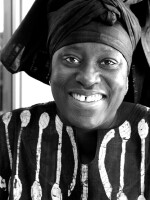STEVE INSKEEP, host:
It's Morning Edition from NPR News. I'm Steve Inskeep.
RENEE MONTAGNE, host:
And I'm Renee Montagne. The leaders of all the counties in Southern Africa have agreed to hold a summit to break the political stalemate in Zimbabwe. And in Zimbabwe just last month, an agreement was struck to share power. President Robert Mugabe at that time shook hands with the main opposition leader. Now that agreement has broken down over dispute over which side gets one very powerful ministry. NPR's Ofeibea Quist-Arcton is in Zimbabwe's capital, Harare. Good morning.
OFEIBEA QUIST-ARCTON: Good day, Renee.
MONTAGNE: This powerful ministry, talk to us about that. Is that the sticking point at this point between the opposition and the government?
QUIST-ARCTON: We're told that it is the main obstacle holding up this power sharing deal. Now, this key ministry is Home Affairs, which may sound innocuous, but it's the Home Affairs Ministry that controls the police. And Morgan Tsvangirai, the main opposition leader, feels that it is crucial that his Movement for Democratic Change controls the police because, of course, remember months back it was the police and the riot police that were accused of being responsible for most of the violence against opposition supporters after the disputed election.
So Morgan Tsvangirai is not budging on this issue. And it looks as if President Mugabe is also not budging. We've been told by the executive secretary of the regional organization, the Southern African Development Community, that they're going to have to come to some agreement. That it could be co-sharing the ministry or it could be rotation of this ministry. But I think Tsvangirai feels that without control of the police, he can't institute the changes he would like to as prime minister designate.
MONTAGNE: Now, we've been hearing how officials from throughout the region have been trying to help mediate an agreement. Why would having a summit of the heads of state make a difference?
QUIST-ARCTON: Up until now it has been a designated mediator, former President of South Africa Thabo Mbeki, who has been facilitating these power sharing talks. Now, it's more than a month after they agreed to the deal, and this issue of the allocation of ministries has held everything up. So I think it shows how urgent the matter has become. But all the leaders in Southern Africa are going to put pressure onto both sides to say, no, you've got to reach agreement, because, of course, meanwhile Zimbabweans are suffering. They are taking the brunt of the economic and political chaos here.
MONTAGNE: Now, if this summit doesn't work?
QUIST-ARCTON: Morgan Tsvangirai, the prime minister designate, has been talking about extending the mediation outside Africa, outside the continent, to make it more international. He feels that he won the only credible election that Zimbabwe has held this year, the first round of the presidential back in March, and that it is very important that his party is seen, if not to control the whole of the government, because it's meant to be a power-sharing government, but that it is going to move Zimbabwe forward. He has said that if there is no agreement, either he will pull out the power sharing deal, but more recently saying that there must be international mediation.
MONTAGNE: And Ofeibea, this stalemate is occurring as by the day life gets worse for Zimbabweans.
QUIST-ARCTON: Day after day after day. Zimbabweans could write a book called what is in a line. They queue and make a line for everything, outside banks, outside supermarkets, for food. But somebody's salary, if they happen to have a job, may only buy a loaf of bread or, I'm told, two and a half bananas. So this is the sort of crisis this country is in. And what's worse, humanitarian agencies are now saying up to half of the population, five million-plus Zimbabweans, by the end of the year are going to be in a state of hunger and needing food aid. So it is a really urgent problem that this country is facing. Zimbabweans want their leaders to stop bickering over politics and to pull the country out of this economic meltdown.
MONTAGNE: Ofeibea, thanks very much. NPR's Ofeibea Quist-Arcton reporting from Harare, Zimbabwe. Transcript provided by NPR, Copyright NPR.







